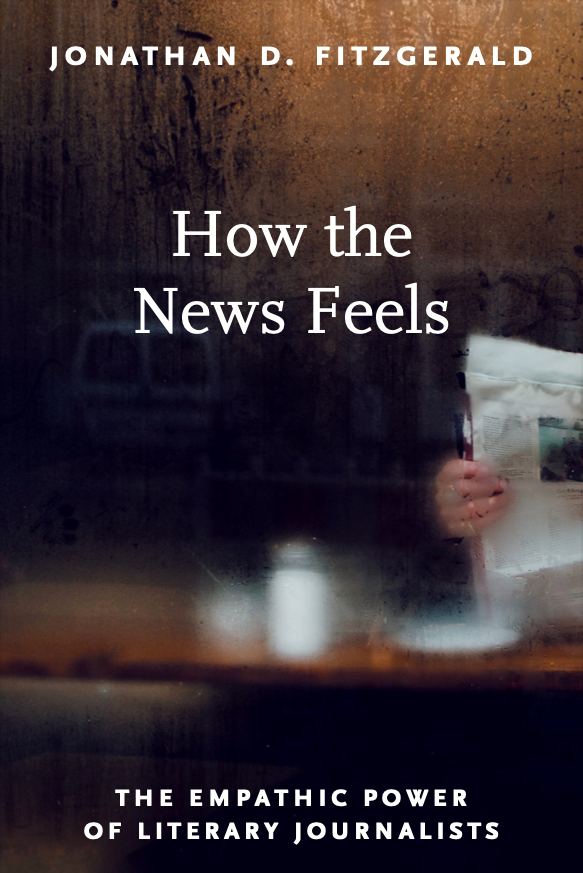By Jonathan D. Fitzgerald
Historically, when women’s stories were told by the so-called objective press, they were often constrained to preconceived notions of stereotypical gender roles, marked as “fallen,” sensationalized as cold-blooded killers or hapless victims, flattened into archetypes to conform to cultural narratives, or stereotyped as microcosmic representations of a larger demographic. But media is not monolith, and the objectified press is not the last word. In my book, How the News Feels: The Empathic Power of Literary Journalists (University of Massachusetts Press, 2023) I argue that from the early nineteenth century to today, women literary journalists have proven particularly effective at creating space for empathy in their writing—a much needed contrast to sensational reporting and objectified journalism. Some of the best and most persuasive—as well as woefully underrepresented—examples of literary journalism were written by women who worked against reductive, objectified representations of their subjects to tell stories imbued with empathy.
Beginning in the nineteenth century, women journalists went to and reported from places that their readers had never visited themselves. Enabling readers to see those who are locked away in unseen places like asylums and prisons through descriptions that were unabashedly subjective and sentimental was an alternative kind of news.
Neither literature nor journalism was telling the story that they wanted to tell in the way they wanted to tell it, so many women journalists forged their own way, which proved to be revolutionary both in terms of subject matter and style. Simultaneously, through the very act of expanding the sentimental beyond the domestic sphere and into the decidedly public arena of the urban daily newspaper, these early literary journalists moved from the private to the public sphere and brought a perceived moral mastery with them.
Even as literature moved away from sentimentalism and as journalism moved toward an “ideal of objectivity,” literary journalists continued to utilize a sentimental ethos against objectified journalism to write about those whose stories had gone untold or had been otherwise caricatured. Indeed, this hybridization of genres proved productive for women writers in the late-nineteenth and early-twentieth century.
When Catharine Williams writes of Sarah Maria Cornell, a murdered factory worker, in her book Fall River, or when Margaret Fuller appeals to her readers to see the women she encountered in an asylum, they tell true stories in a sentimental mode with the cumulative effect of evoking empathy for their subjects. In this way, women writers in the nineteenth century were pivotal in the development of the genre that would become literary journalism, and their sentimental ethos—what I call their empathic power—has been carried on by generations of literary journalists through to today.
Jonathan D. Fitzgerald is an Assistant Professor in the Department of Humanities at Regis College in Weston, Massachusetts.

